In Nom script, the clock once appeared in the sentence: " On a long winter night, the clock chimed loudly " (𣈘冬 長 銅 壼 咱 説) - Ca trù the cách , printed from the woodblock of Lieu Van Duong tang ban, Thanh Thai Canh Ty year (1900).
Clock comes from Chinese, consisting of 2 words:
Dong (铜) is a character that first appeared in a Warring States period text. Its original meaning refers to a type of metal. In ancient times, it was called "red gold" (赤金) as in Mozi. Miscellaneous writings .
Hu (壶) is a character first seen in oracle bone script during the Shang Dynasty, its original meaning is a container for liquid ( Zuo Zhuan. Year 13 of Duke Zhao ). In ancient times, people mainly used lakes to hold water and wine, and later expanded them into a tool for measuring time by dripping water. When receiving guests, the ancients also used this tool to entertain guests.
The compound word clock (铜 壶) has two main meanings:
a. Copper kettles , used to hold wine and water, come in three types: red copper kettles (the best type), brass kettles and white copper kettles, usually handcrafted or cast.
b. Time measuring instrument , a type of ancient clock in the shape of a bronze kettle, with a characteristic design: small neck, flared mouth, bulging belly, round legs, and decorative patterns on the outside. This type inherits the traditional style of the Spring and Autumn - Warring States period. Round kettles are called Chung (钟), square kettles are called Phuong (方).
In ancient literature, there are many articles mentioning clocks , such as "Good wine depends on the cup, copper kettle rusts drop by drop " - quoted from the poem "Nhac Phu" by Co Huong from the Tang Dynasty; or the sentence "Tinh thich dac dong ho tich lau, da nguyet vi tan" (Listening to the copper kettle dripping, the moon is dim in the night) in "Bai Tuyet Di Am" from the Qing Dynasty.
Clock (铜壶) originates from the idiom "dong zhi luo" (铜壶滴漏) in the Tang Dynasty poem " Ke ming da qu" (The Great Song of the Rooster) by Wen Tingjun - a phrase used to refer to a type of "bronze kettle containing dripping water to tell the time", synonymous with the idiom "dong zhi luo" (铜壶刻漏).
Originally, the word "clock " was used to refer to a type of "water clock", which used flowing water to calculate time, according to a calculation called "luohu" (漏壶) or "keiluohu" (刻漏壶). This method of calculating time was earliest recorded in Zhouli (周礼). Initially, there were only 2 teapots (or vases, basins) and later increased to 4 or 5 teapots, water dripping from the upper teapot to the lower teapot; the water level caused the arrow to rise to indicate the scale (ie time). In the "Guanshu Keluo Tu" (1135) by Wang Puchu of the Song Dynasty and the "Luc Kinh Tu" (1155) by Yang Jun of the Song Dynasty, water clocks were shown to be in the shape of lotus vases.
In short, clock is a word of Chinese origin, introduced to our country around the Tang Dynasty. The ancients called "water clock" " thuy chung" (水钟). Nowadays, Vietnamese people use the word "clock" to refer to a time measuring instrument, while the Chinese call it "time bell" (时 钟, shízhōng), and the Japanese call it "time clock" (時 計, tokei). For the Japanese, clock (銅 壺, dōko) is often understood as a bronze vessel similar to a kamado (か ま ど), mainly used to heat sake.
Source: https://thanhnien.vn/lat-leo-chu-nghia-vi-sao-goi-la-dong-ho-185250905222127085.htm


![[Photo] General Secretary To Lam, Secretary of the Central Military Commission attends the 12th Party Congress of the Army](https://vphoto.vietnam.vn/thumb/1200x675/vietnam/resource/IMAGE/2025/9/30/9b63aaa37ddb472ead84e3870a8ae825)

![[Photo] General Secretary To Lam receives US Ambassador to Vietnam Marc Knapper](https://vphoto.vietnam.vn/thumb/1200x675/vietnam/resource/IMAGE/2025/9/29/c8fd0761aa184da7814aee57d87c49b3)

![[Photo] The 1st Congress of Phu Tho Provincial Party Committee, term 2025-2030](https://vphoto.vietnam.vn/thumb/1200x675/vietnam/resource/IMAGE/2025/9/30/1507da06216649bba8a1ce6251816820)
![[Photo] Solemn opening of the 12th Military Party Congress for the 2025-2030 term](https://vphoto.vietnam.vn/thumb/1200x675/vietnam/resource/IMAGE/2025/9/30/2cd383b3130d41a1a4b5ace0d5eb989d)





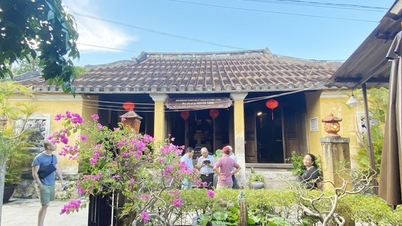



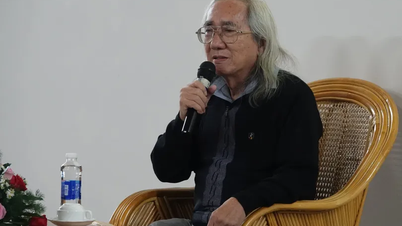

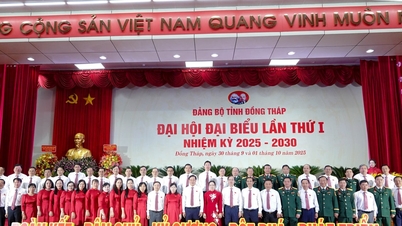





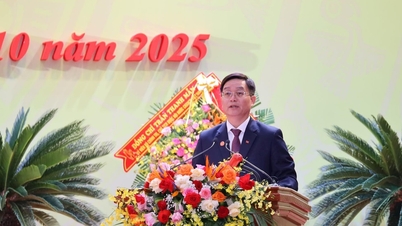






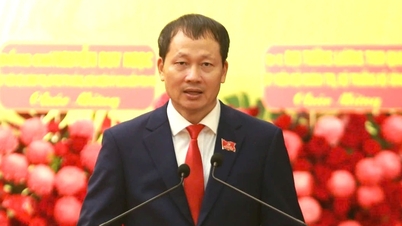



![[Photo] Many streets in Hanoi were flooded due to the effects of storm Bualoi](https://vphoto.vietnam.vn/thumb/1200x675/vietnam/resource/IMAGE/2025/9/29/18b658aa0fa2495c927ade4bbe0096df)
![[Photo] General Secretary To Lam attends the ceremony to celebrate the 80th anniversary of the post and telecommunications sector and the 66th anniversary of the science and technology sector.](https://vphoto.vietnam.vn/thumb/1200x675/vietnam/resource/IMAGE/2025/9/29/8e86b39b8fe44121a2b14a031f4cef46)






































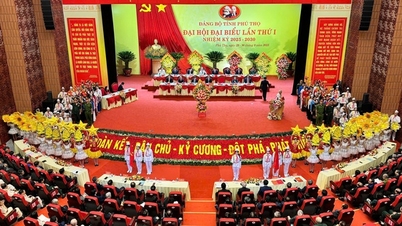




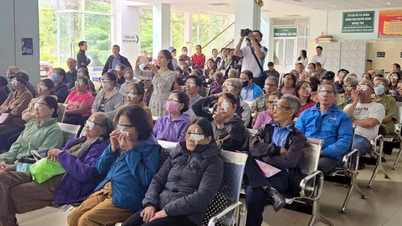

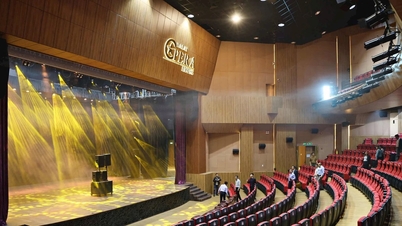


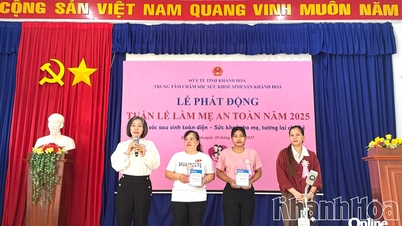















Comment (0)